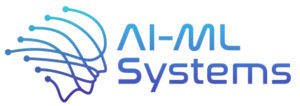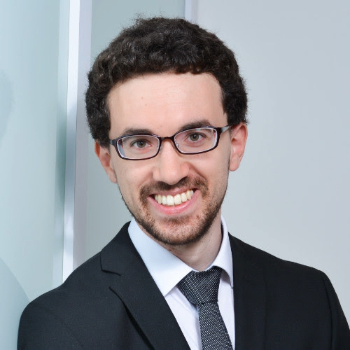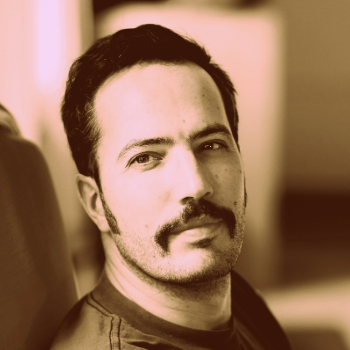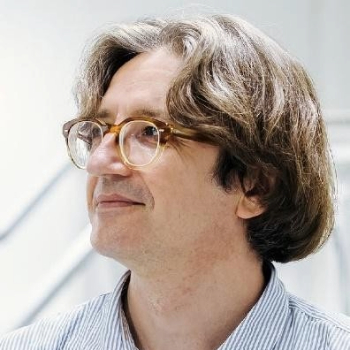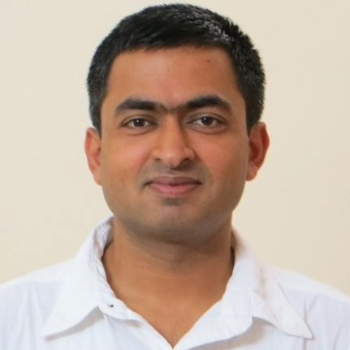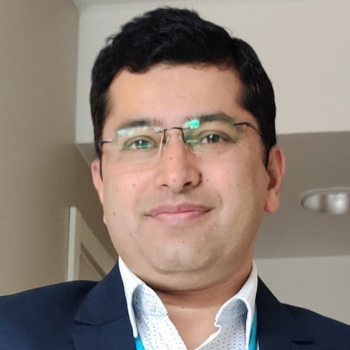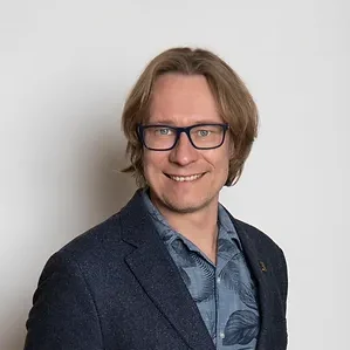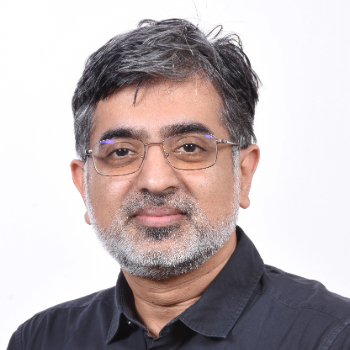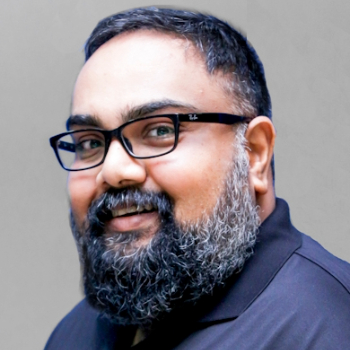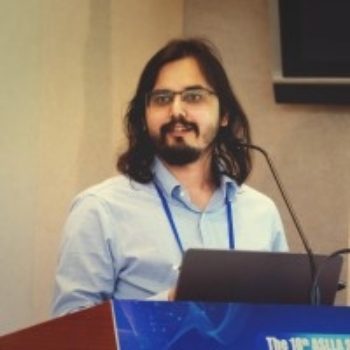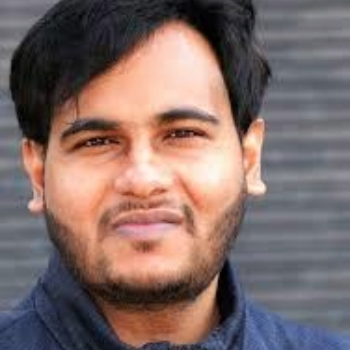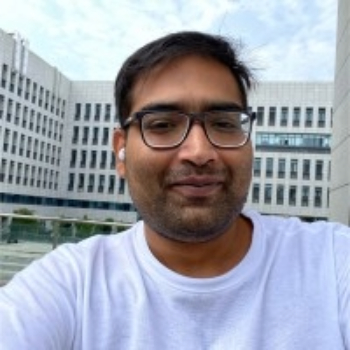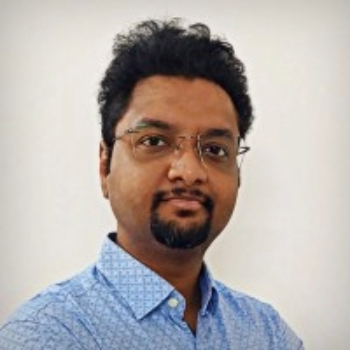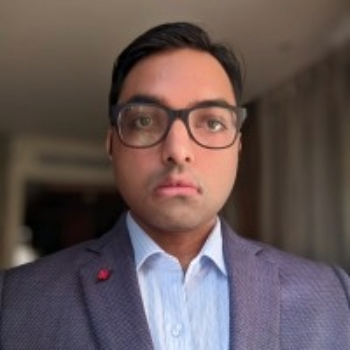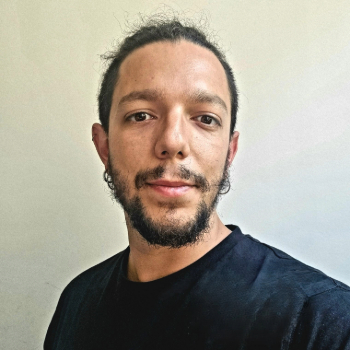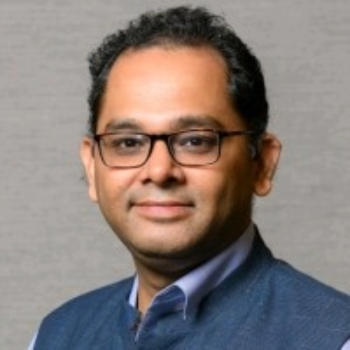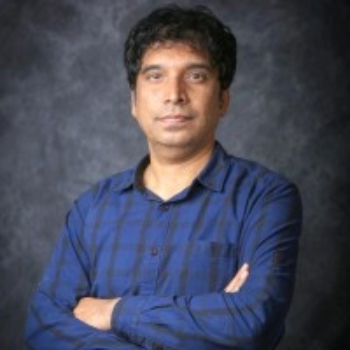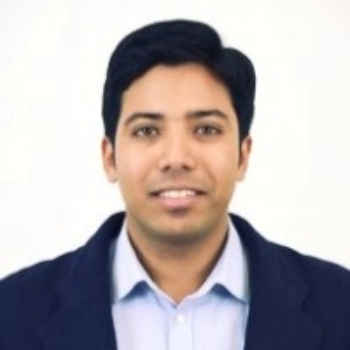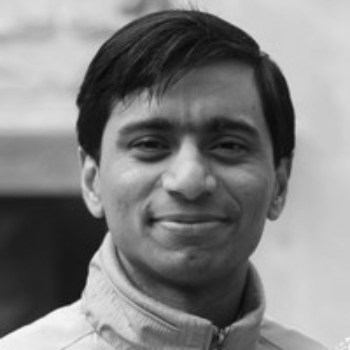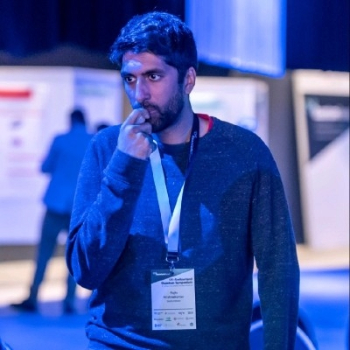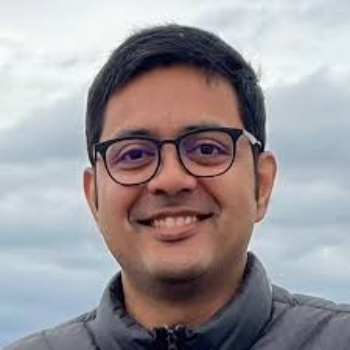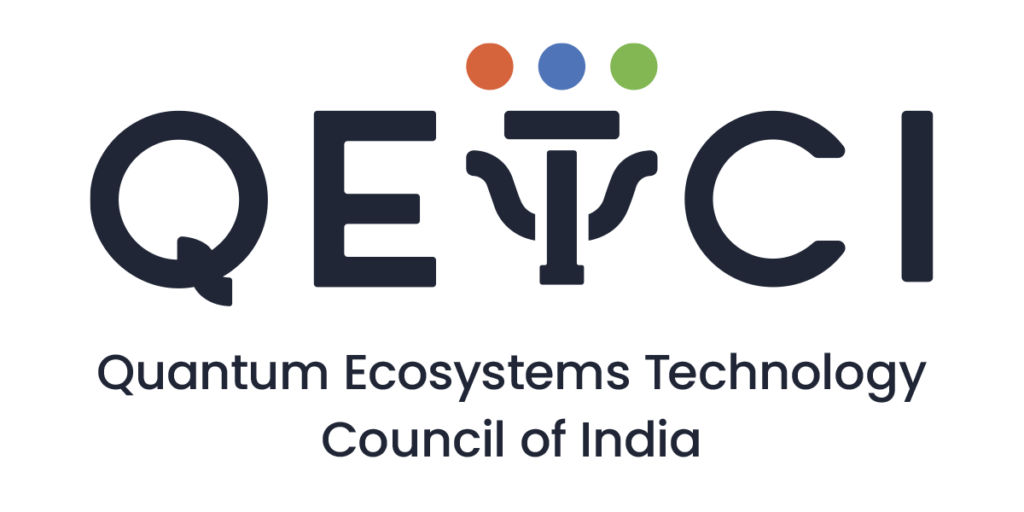Symposium Celebrating the Quantum Century (SCQC) 2025
From Puzzling Principles to Transformative Technologies.
7th and 8th October 2025
Introduction
The year 2025 marks a historic milestone – 100 years since the birth of Quantum Mechanics, a scientific revolution that redefined our understanding of nature at its most fundamental level. In celebration of this centenary and aligned with the International Year of Quantum Science and Technology (IYQ 2025) declared by UNESCO, we proudly present a Workshop celebrating the Quantum Century: from Puzzling Principles to Transformative Technologies 2025 (SCQC 2025).
Organized under the aegis of the COMSNETS Association, SCQC 2025 is a special edition workshop dedicated to reflecting on a century of quantum discoveries while charting the course for the next era of transformative quantum technologies. This workshop encompasses all four major drivers of quantum technology, i.e. computing, sensing, communications, and materials.
From the early philosophical debates on wave-particle duality and uncertainty, to today’s advancements in quantum computing, communication, sensing, and materials, this workshop serves as a unique platform to bridge the journey from foundational principles to real-world impact.
SCQC 2025 will bring together a distinguished community of researchers, industry leaders, policymakers, entrepreneurs, startups, students, and educators.
Defining Features
- Thematic Focus: Celebrating a century of quantum science with forward-looking
perspectives. - Keynote Addresses: Talks by eminent physicists, technologists, and thought leaders.
- Technical Sessions: Peer-reviewed contributions spanning quantum technologies and
foundational research. - Industry & Policy Panels: Discussions on commercialization pathways, standardization, and global quantum strategy.
- Showcase of India’s Quantum Ecosystem: Highlighting NQM hubs, startups, and
academic excellence.
Motivations
Our symposium SCQC 2025 aims to serve as:
- A bridge between past and future, honoring quantum pioneers while empowering today’s innovators.
- A convergence point for interdisciplinary dialogue across physics, engineering, computer science, materials science, and industry.
- A platform that not only celebrates achievements but also addresses critical questions:
How do we accelerate the transition of quantum research into scalable, impactful
technologies?
SCQC 2025 aspires to be remembered not just as a commemorative event, but as a catalyst for the next quantum revolution.
- Paper Submission Deadline:
1st August 2025 10th August 2025 - Notification of Acceptance:
1st September 20257th September 2025 - Camera-Ready Submission:
11th September 202515th September 2025 - Symposium Dates:
7th and 8th October 2025
General Co-Chairs:
- Kishor Bharti, A*Star Q. Inc., Singapore
- Raktim Halder, IIT Bhubaneswar, India
- Chiranjib Mukhopadhyay, University of Electronic Sciences and Technology of China, China
- Aritra Sarkar, Fujitsu Research, India
- Rahul Sawant, IIT Madras, India
- Luca Troise, Technical University of Denmark, Denmark
Local Organizing Committee Co-Chairs:
- Prasant Misra, TCS Research, India
Steering/Advisory Committee Co-Chairs:
- M Girish Chandra, TCS Research, India
- Sourav Chatterjee, TCS Research, India
- Nitin Jain, Technical University of Denmark, Denmark
- Rajiv Krishnakumar, QuantumBasel, Switzerland
- Kaushik Seshadreesan, University of Pittsburgh, USA
Confirmed Speakers
Nadia Belabas
Université Paris-Saclay, France
Title
Divide and conquer: variations on beamsplitting in quantum optics
Bio
Dr. Nadia Belabas has been a CNRS researcher since 2004. She is an expert notably in semiconductor nanophotonics, quantum optics and photonic circuitry. She initially worked on broadband pulse-shaping, Fourier transform and multidimensional nonlinear spectroscopy. She then opened prospects in integrated classical and quantum photonics with innovative guided light manipulation and new parametric sources. Since 2016 she proposed and implemented quantum tasks with nonlinear waveguide arrays, semiconductors parametric and on-demand sources and beyond, both in the continuous and discrete variable framework. Her current interests include time-frequency encoding of quantum information and quantum fibered implementations in the telecom wavelength regime.
Tobias Haug
Technology Innovation Institute, United Arab Emirates
Title
Quantum Fisher information metric for quantum machine learning
Bio
Dr. Tobias Haug is senior researcher at TII in Abu Dhabi, UAE. He received his PhD from the Centre for Quantum Technology in Singapore in 2021. During his PhD he worked at NTT in Japan and Entropica Labs in Singapore. After his PhD he was a postdoctoral researcher at Imperial College London. His research focuses on quantum algorithms, quantum machine learning, quantum cryptography, quantum error correction and resource theories of magic.
Antoine (Jack) Jacquier
Imperial College London, England
Bio
Prof. Antoine (Jack) Jacquier is a Professor of Mathematics at Imperial College London. He holds a Masters Degree from ESSEC Business School and a PhD in Mathematics from Imperial College London. His research broadly focuses on the developments and applications of mathematical theories to quantitative finance, ranging from stochastic analysis to numerical analysis and quantum computing. Prof. Jacquier also serves as a scientific consultant and advisor for various finance and technology companies.
Fedor Jelezko
Institute of Quantum Optics at Ulm University, Germany
Bio
Prof. Dr. Fedor Jelezko is currently a director of the Institute of Quantum Optics at Ulm University, director of the Centre for Integrated Quantum Science and Technology and member of Heidelberg Academy of Sciences.
He studied in Minsk (Belarus) and received his Ph.D. in 1998. After finishing the habilitation in 2010 at Stuttgart University he was appointed as a professor of experimental physics in Ulm in 2011. His research interests are at the intersection of fundamental quantum science and quantum technologies. His research team is exploring applications of spin qubits in diamond for information processing, communication, sensing, and imaging.
Outside academia, he is involved in the development of quantum technologies based on spin qubits. Fedor Jelezko and his team could show that it is possible to create a hyperpolarization of nuclear spins in diamond or external molecules under ambient conditions. Such diamonds become visible in standard MRI machines and thus offer new perspectives for enhanced medical imaging. Having applied for a patent on this idea, Prof. Jelezko and his colleagues are now pursuing its exploitation by means of their start-up company NVision Imaging Technologies GmbH.
Anand Kumar Jha
Indian Institute of Technology Kanpur, India
Bio
Prof. Anand Kumar Jha obtained his 5 years’ integrated MSc in Physics from IIT Kharagpur in 2002 and his PhD from the University of Rochester in 2009. After doing a postdoc for about a year at the University of Rochester, Dr. Jha worked with Intel corporation for about two years and then joined IIT Kanpur as an assistant professor of Physics in 2013. Since 2022, he has been a professor of Physics at IIT Kanpur. Dr. Jha has setup a “quantum optics and entanglement” laboratory at IIT Kanpur and carries out research in the broad areas of classical & quantum coherence, quantum entanglement, and quantum imaging.
Bhaskar Kanseri
Indian Institute of Technology Delhi, India
Bio
Prof. Bhaskar Kanseri is working as IHFC chair professor at Department of Physics and a joint faculty at Optics and Photonics Center (OPC), IIT Delhi. Prior joining IITD, he was postdoctoral fellow at Institut d’Optique, Palaiseau France, and earlier at Max Planck Institute for the Science of Light, Erlangen Germany. He received his PhD from University of Delhi and National Physical Laboratory, New Delhi. He has more than 75 publications in peer-reviewed international journals and about 160 conference presentations and invited lectures in his credit. He has been awarded “Teaching excellence award-2022” and “Veena Arora Early Career Research Award-2022” by IIT Delhi for his teaching and research contributions. In 2023, he has been selected as member of The National Academy of Sciences India (NASI), and Associate fellow at the Indian National Science Academy (INSA). His notable contributions in Quantum security domain are realization of the longest quantum secure communication in the country in both fibre channel and in free-space channel. Currently, he is pioneering entanglement-based quantum network activities at IIT Delhi.
Marcin Pawłowski
University of Gdańsk, Poland
Bio
Prof. Marcin Pawłowski obtained his PhD in physics at University of Gdańsk in 2010. Later he worked as a post-doc at University of Bristol from which he returned to Gdańsk in 2013 to start his own research group. Currently he is the head of Quantum Cybersecurity and Communication group at International Centre for Theory of Quantum Technologies. The topics oh his research range from quantum foundational, through quantum cryptography, to machine learning. His work also focuses on the simplification of quantum algorithms to make them more efficient and realizable with simpler experimental setups. He is also a founder of two startup companies: QCG – which delivers comprehensive cryptographic solutions, and SeQure Quantum – which builds device independent random number generators.
R. Vijayaraghavan
Tata Institute of Fundamental Research, Mumbai, India
Title
Superconducting quantum electrical circuits: a platform for technology and fundamental science.
Bio
Dr. Vijayaraghavan is currently an Associate Professor at the Tata Institute of Fundamental Research, Mumbai and heads the Quantum Measurement and Control Laboratory where the research focuses on superconducting quantum circuits. He is currently leading several projects to build small to medium scale quantum processors with funding from DAE, DRDO, TCS and DST. He is also the Lead PI for the Technical Group working on building superconducting quantum computers under the National Quantum Mission. He is a recipient of the Ramanujan Fellowship (2013-18) awarded by the Department of Science and Technology of the Government of India, and a Fellow of the Indian Academy of Sciences, Bangalore since January 2024. He was awarded the Pancharatnam prize for excellence in quantum science and technology by the Government of Karnataka in July 2025.
Sai Vinjanampathy
Indian Institute of Technology Bombay, India
Bio
Prof. Sai Vinjanampathy completed his Ph.D. in 2010 from Louisiana State University, USA. Thereafter, he was a postdoctoral fellow in University of Massachusetts, Boston from 2010 to 2012 and then at the Centre for Quantum Technologies Singapore from 2012 to 2016. Since July 2016, he has been a faculty member in the Physics department at IIT Bombay. His group works on the physics of quantum technologies, exploring diverse topics from nonlinear dynamics of quantum systems, exotic phase transitions and novel sensor designs.
Technical Program Committee (TPC)
Kuntal Adak – Tata Consultancy Services Research, India
Alessio Avella – Istituto Nazionale di Ricerca Metrologica, Italy
Anindita Banerjee – Centre for Development of Advanced Computing, India
Debajyoti Bera – Indraprastha Institute of Information Technology Delhi, India
Sanchari Chakraborti – Indian Institute of Science, India
Subhasri Chatterjee – Tata Consultancy Services Research, India
Anubhav Chaturvedi – Gdańsk University of Technology, Poland
Zainab Chowdhry – Indian Institute of Technology Madras, Chennai, India
Soumya Das – Eindhoven University of Technology, Netherlands
Jyoti Faujdar – University of Ottawa, Canada
Kaumudibikash Goswami – University of Hong Kong, Hong Kong
Ananthakrishna Gopal – Tata Consultancy Services Research
Pavithran Iyer – Xanadu Quantum Technologies, Canada
Aditya Jain – PsiQuantum, London, England
Kaushik Joarder – Friedrich Schiller University Jena, Germany
Ankit Khandelwal – Tata Consultancy Services Research, India
Akash Kundu – Department of Physics, University of Helsinki, Finland
Dhiren Kara – Technical University of Denmark, Denmark
Ritajit Majumdar – IBM Quantum, India
Nirmal M R – Tata Consultancy Services Research, India
Sunil Kumar Mishra – Indian Institute of Technology BHU, Varanasi, India
Subhadeep Mondal – Indian Institute of Technology Kharagpur, Kharagpur, India
Surya Narayan Sahoo – National Institute of Science Education and Research Bhubaneswar, India
Abhishek Sadhu – Indian Association for the Cultivation of Science, India
Rajiv Sangle – Fujitsu Research
Sonia Sarkar – Indian Institute of Technology Bombay, Mumbai, India
Mohammad Shahbaz Shaik – International Institute of Information Technology – Hyderabad, India
Rohan Thingbaijam – Tata Consultancy Services Research
Dhrumil Patel – Cornell University, Ithaca, USA
Rahul Rana – Tata Consultancy Services Research, India
M A Rajan – Tata Consultancy Services Research, India
Ankur Raina – Indian Institute of Science Education and Research Bhopal, India
Sayantan Pramanik – Tata Consultancy Services Research, India
Suman Roy – Tata Consultancy Services Research, India
Symposium Co-Chairs
Kishor Bharti
A*Star Q. Inc., Singapore
Raktim Halder
IIT Bhubaneswar, India
Chiranjib Mukhopadhyay
University of Electronic Sciences and Technology of China, China
Aritra Sarkar
Fujitsu Research, India
Rahul Sawant
IIT Madras, India
Luca Troise
Technical University of Denmark, Denmark
Local Organizing Committee Co-Chairs
Prasant Misra
TCS Research, India
Steering/Advisory Committee Co-Chairs
M Girish Chandra
TCS Research, India
Sourav Chatterjee
TCS Research, India
Nitin Jain
Technical University of Denmark, Denmark
Rajiv Krishnakumar
QuantumBasel, Switzerland
Kaushik Seshadreesan
University of Pittsburgh, USA
Workshop Organization
Sponsors & Partners
Opportunities available for sponsorship and collaboration. Contact us for details.
Workshop Venue
Chancery Pavilion Hotel, Bengaluru, India.
Contact Information
For inquiries regarding submissions, participation, or sponsorship:
Email: [email protected]
Quick Links
- National Quantum Mission (NQM): https://dst.gov.in/national-quantum-mission-nqm
- AI-ML Systems 2025: https://www.aimlsystems.org/2025/
- IEEE Formatting: https://www.ieee.org/conferences/publishing/templates.html
Symposium celebrating the quantum century (SCQC 2025)
Accepted for presentation/publication in the IEEE-proceedings track
1. Evolving Quantum Feature Maps with Hierarchical Genetic Algorithms for Robust Indoor Localization
Authors: Tripathi, Devendra*; Kundu, Neel Kanth; Dixit, Abhishek
2. Experimental Validation of Dequantization of Hybrid Quantum Machine Learning Models using Classical Surrogates
Authors: Mittal, Sparsh; Kumar, Mintu; Chand, Yash; Krishnakumar, Rajiv; Kundu, Neel Kanth *
3. Optical modeling and simulation of the fluorescence emission and detection in diamond magnetometry
Authors: Raina, Ritvik*; Anand, Prabhat ; Chatterjee, Sourav
4. A Transformer-GNN Framework for Learning Full Output Distributions of Quantum Circuits
Authors: Baba, Tourad; Dr. Lu, Tianxiang*
5. CoQS-LSTM: A Coherent Quantum LSTM
Authors: Singh, Davinder; Nath, Ushnik; Gupta, Anubha; Bera, Debajyoti*
6. Quantum Inspired Machine Learning Models for Enhanced Weather Prediction
Authors: Tiwari, Abhishek*; Kumar, Dr. Sachin; Siyanwal, Shivanshu; Sakhuja, Saiyam
7. Adaptive Quantum-Enhanced Learning: A Dynamic Hybrid Framework for Robust Quantum Machine Learning in the NISQ Era
Authors: Goyal, Kushagra*; Pathak, Avinash
8. Benchmarking the Quantum Frontier: Evaluating QML Models on Core Learning Tasks
Authors: P, Samarth*; Shashidhar, Sadhana; Rajani, Sakshi; Masand, Sakshi
9. Quantum Machine Learning for Anomaly Detection in IoT Devices
Authors: Chowdhury, Sajid*; Karim, Shaikh Faiyaz; Bhuiyan, Md. Shahriar Islam; Shuvro, Ali Abir; Hossen, Dr. Md. Sakhawat
10. Amplifying Block Encoded Quantum Operations with Grover Iterations
Authors: Venkannagari, Nishitha Reddy*; Puram, Varun Teja; Thomas, Johnson P
11. Elevating LLMs via synergy of Quantum Computing and classical transformer models
Authors: Sharma, Shashanka Shekhar ; Sarma, Hrishikesh; Katiyar, Ritisha *; M., Gayathri
12. Toward Quantum Enabled Solutions for Real-Time Currency Arbitrage in Financial Markets
Authors: Roy, Suman*; Rana, Rahul; Chandra, M Girish; Kumar, Nishant; Nambiar, Manoj
Accepted for presentation/publication in the non-proceedings track
1. Shallow Circuits for Quantum Simulation of Molecular Vibrations
Authors: M R, Nirmal*; Khandelwal, Ankit; Nambiar, Manoj
2. Quantum Autoencoders for Efficient Molecular Simulations
Authors: Khandelwal, Ankit*; M R, Nirmal; Chandra, M Girish
3. Diamond sensors for nano-magnetometry of hematite particles
Authors: Dubey, Pralekh*; Ingole, Gauri; Kumar, Shashank; Peddibhotla, Phani Kumar
4. Krylov Quantum Selected Configuration Interaction Algorithm applied to Atomic Many Body Computations
Authors: Sahoo, Pradyot*; Das, Bhanu Pratap; Prasanna V, Srinivasa
5. Quantum-Integrated Systems for Space Warfare: ISR, C2, and Adaptive Engagement
Authors: Pandya, Komal*
6. Multi-Target Space Debris Optimization and Mission Planning Using Gaussian Boson Sampling
Authors: Pandya, Komal*; Sakhuja, Saiyam
Schedule
DATE: Tuesday, 7th Oct 2025
Venue: Indian Affairs – The Chancery Pavilion (Hotel), Bengaluru, India
| Session | Title |
| 09:00 – 09:30 | Registration |
| 09:30 – 10:00 | Welcome Address |
| 10:00 – 10:40 | Quantum Computing, a new toolbox for Stochastic Analysis & Machine Learning? Antoine Jacquier |
| 10:40 – 11:20 | Superconducting quantum electrical circuits: a platform for technology and fundamental science R. Vijayaraghavan |
| 11:20 – 11:35 | Evolving Quantum Feature Maps with Hierarchical Genetic Algorithms for Robust Indoor Localization Devendra Tripathi |
| Tea/Coffee Break 11:35 – 12:00 | |
| 12:05 – 12:45 | Designing Sensors using Randomness Sai Vinjanampathy |
| 12:45 – 13:00 | Experimental Validation of Dequantization of Hybrid Quantum Machine Learning Models using Classical Surrogates Sparsh Mittal |
| Lunch Break 13:00 – 14:00 | |
| 14:00 – 14:40 | Quantum Fisher information metric for quantum machine learning Tobias Haug |
| 14:40 – 14:55 | Quantum-Integrated Systems for Space Warfare: ISR, C2, and Adaptive Engagement Komal Pandya |
| 15:00 – 16:00 | Poster Session |
| Tea/Coffee Break (along with Poster Session) 16:00 – 16:30 | |
| 16:30 – 17:15 | Snippets of theoretical developments over 100 years of quantum mechanics Sai Vinjanampathy |
| 17:15 – 18:00 | Diamond as quantum sensors : new opportunities for everyday life Fedor Jelezko |
DATE: Wednesday, 8th Oct 2025
Venue: Indian Affairs – The Chancery Pavilion (Hotel), Bengaluru, India
| Session | Title |
| 10:00 – 10:40 | Towards Practical Quantum Secure Hybrid Networks Bhaskar Kanseri |
| 10:40 – 10:55 | Diamond sensors for nano-magnetometry of hematite particles Pralekh Dubey |
| Tea/Coffee Break 11:00 – 11:30 | |
| 11:30 – 12:10 | Spin qubits in diamond Fedor Jelezko |
| 12:10 – 12:50 | Go to market strategy for device independent quantum cryptography Marcin Pawłowski |
| 12:50 – 13:05 | Krylov Quantum Selected Configuration Interaction Algorithm applied to Atomic Many Body Computations Pradyot Sahoo |
| Lunch Break 13:00 – 14:00 | |
| 14:05 – 14:45 | Divide and conquer: variations on beamsplitting in quantum optics Nadia Belabas |
| 14:45 – 15:25 | Partial coherence: Applications in quantum state measurement and quantum imaging Anand K. Jha |
| 15:25 – 16:00 | Poster Session |
| Tea/Coffee Break (along with Poster Session) 16:00 – 16:30 | |
| 16:30 – 17:45 | Industry Panel Session Moderator: QETCI Panellists: IBM, TCS & QNu Labs |
| 17:45 – 18:00 | Best Paper Award & Closing Remarks |
